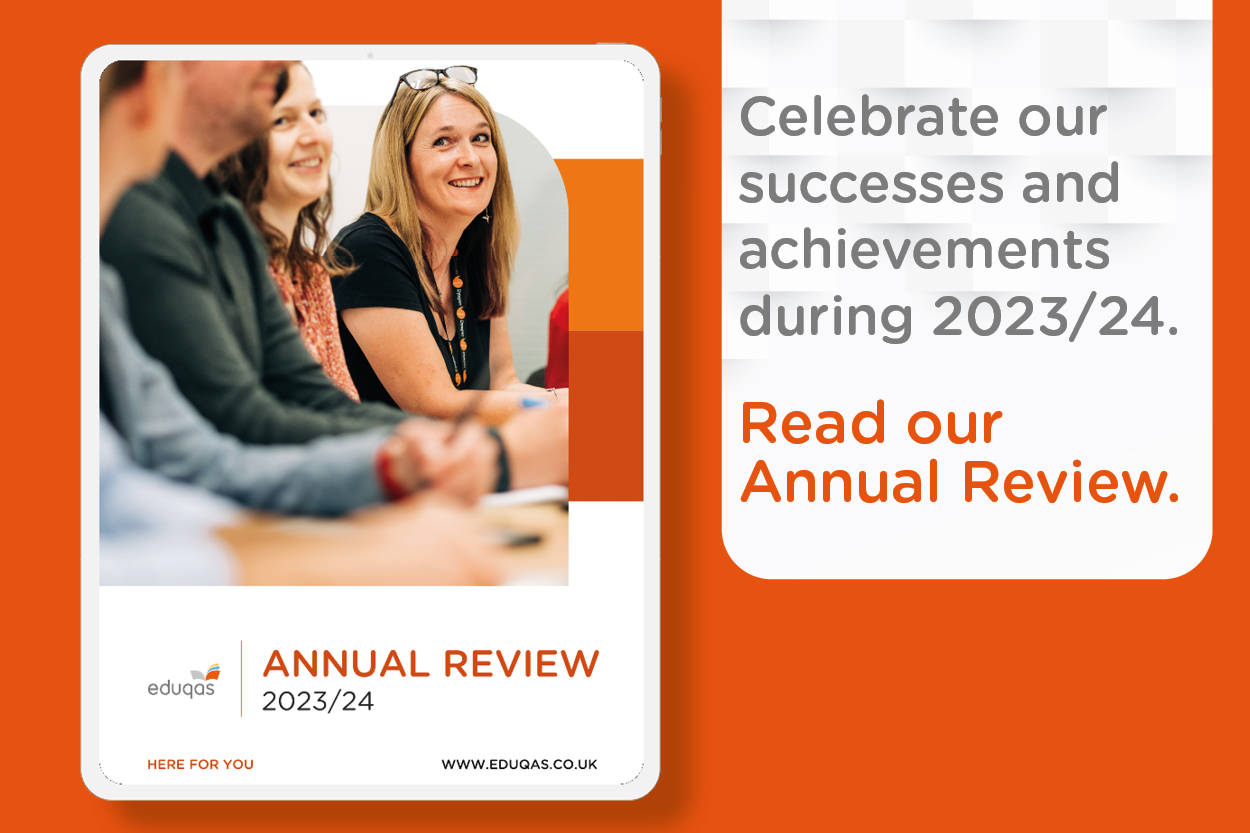GCSE Latin
Theme A: Heroes and Villains - a selection of Latin texts and sources on Romans good and bad / Theme B: Come Dine with me! - a selection of Latin texts and sources on food and dining in the Roman world.
Authors to be examined in 2026-2027 are Livy (Hannibal Crosses the Alps, in Latin and English) and Virgil (Hercules and Cacus, in Latin and English).
Topics for examination in summer 2027, 2028 and 2029, will be:
Topic 7: Slavery in the Roman World
Topic 8: Roman Festivals and Worship
The sub-headings for these topics can be found in Appendix C of the specification.
 |
Latin Resource Guide - This booklet provides an overview of the support, guidance and resources available to those teaching the Eduqas GCSE Latin specification across our suite of websites. |
The Eduqas GCSE in Latin aims to provide a foundation in linguistic and cultural competence, enabling learners to gain knowledge and understanding of the Roman world through reading and responding to its language and literature. In particular, this specification enables learners to:
- develop and deploy their knowledge of vocabulary, morphology and syntax in order to read, understand and interpret straightforward Latin
- develop their knowledge and understanding of Latin literature and its associated values and society through the study of original texts, adapted and abridged as appropriate
- select, analyse and evaluate evidence to draw informed conclusions from the literature studied to
- demonstrate knowledge and understanding of the historical, literary and cultural context of a text and
- identify and appreciate its literary form and impact on the reader
- develop and apply their critical, analytical and reflective skills to evaluate evidence from a range of sources
- develop insights into the relevance of the Latin language, its literature and Roman culture to the modern world.
It also encourages learners to:
- deploy their knowledge and understanding of the ancient language to deepen their understanding of English and other languages
- relate their knowledge and understanding of the ancient world to other disciplines
- develop research and analytical skills which will empower them to become independent students and enquirers, equipping them for further study in arts, humanities and sciences.
This GCSE Latin course recognises that learners reach the GCSE standard in Latin through many different routes and amounts of access to learning and teaching time. It therefore aims to allow centres and learners as many opportunities as possible to design courses which most appropriately suit their needs and interests. As this is a non-tiered assessment, Eduqas is aware of the need to satisfy the interests of the whole ability range.
Why choose Eduqas?
- Direct access to our subject specialists
- Choice of set texts and Roman Civilisation topics
- The opportunity to receive centre visits from our Regional Support Team
Important information, past papers, marking schemes, entry/amendment uploads & make post-results enquiries.
Access interactive units including general data, exam questions, marking schemes & examiner comments.
Our professional learning experts are ready to answer questions on all our training courses.
Free resources to support the teaching of GCSE Latin are available from the Cambridge School Classics Project.
Grade boundaries are the minimum number of marks needed to achieve each grade.
Free resources to support the teaching of GCSE Latin are available from the Cambridge School Classics Project.
Access a collection of interactive units that bring together a number of elements including general data, exam questions, their marking schemes and examiner comments, which will lead you through a review of exam questions.





